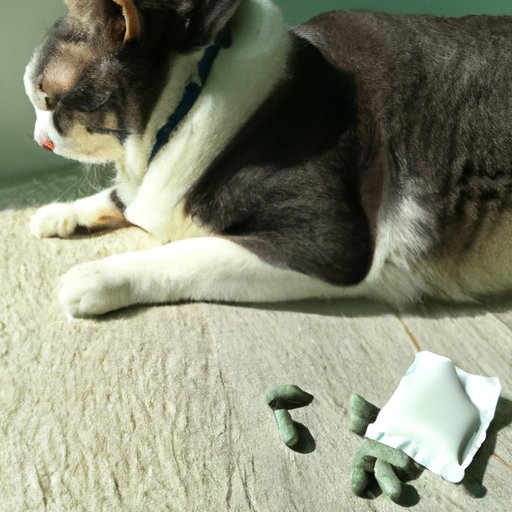
I. Introduction
As a pet owner, it can be worrying if your cat is underweight or not eating properly. However, helping your cat gain weight can seem like a difficult task. The first step is to understand why maintaining a healthy weight for your cat is crucial.
Just like humans, cats need to maintain a healthy weight to live long and healthy lives. Having an underweight cat can lead to many health problems, including a weakened immune system and malnutrition. On the other hand, an overweight cat can suffer from a range of health issues, including heart disease and diabetes. Therefore, it’s essential to help your cat achieve and maintain a healthy body weight.
II. Increase Calorie Intake
If your cat is underweight, one of the first things to consider is increasing their calorie intake. However, it’s important to do so in a healthy way.
High-protein and high-fat foods are ideal for putting weight on your cat. Look for wet foods with at least 30% protein. This will help your cat build muscle mass and promote weight gain. Avoid foods with too many grains or fillers, as they can be tough to digest and won’t provide many calories.
The amount of food you should feed your cat depends on their current weight and daily activity level. Your veterinarian can recommend the right amount of calories for your cat. Start by adding a small amount to your cat’s meals, and then gradually increase the portion size as they adjust to the new diet.
III. Serve Small and Frequent Meals
Avoid giving your cat too much food at once, as they may find it difficult to digest. Instead, serve smaller and more frequent meals throughout the day. This will help improve their appetite and allow them to eat comfortably without feeling full.
Consider feeding your cat three to four small meals per day instead of one or two larger meals. This will prevent your cat from overeating or becoming too full and prevent feeding-related stress, which can cause stomach problems and digestive issues.
When planning meals, consider your cat’s routine and stick to it as best as possible. If your cat is used to eating at a certain time of the day, it may be best to stick to that routine to make the transition easier for them. This can also help in avoiding any emotional or behavioral problems that could arise from changes in their usual routine.
IV. Add Supplements
Supplements can help your cat gain weight and improve their overall health. Fish oil supplements, for example, are a great source of healthy fats that can help improve your cat’s coat and support healthy weight gain. You can also add multivitamins, which can help boost your cat’s immune system and metabolism.
However, it’s important to consult with your veterinarian before adding any supplements to your cat’s diet. They can recommend the right dosage and type of supplements for your cat’s unique needs, as some supplements can be harmful or ineffective.
V. Playtime and Exercise
Physical activity is essential for maintaining a healthy weight and improving your cat’s overall health. Exercise stimulates metabolism and improves digestion, which can help your cat absorb nutrients better.
Try introducing fun and interactive ways to increase your cat’s activity levels. Toys like balls and interactive treat dispensers can encourage your cat to move and play. You can also schedule regular playtime sessions and provide them with plenty of space and activities to climb, explore, and move around.
However, be mindful not to over-exert your cat, especially if they are overweight or have underlying health issues. Start slowly and gradually increase the intensity and duration of their activities over time. Always monitor their behavior and tireness level, and stop if they seem uncomfortable or in pain.
VI. Regular Vet Checkups
Your veterinarian plays a crucial role in maintaining your cat’s healthy weight. Regular checkups can help identify any underlying health issues that could hinder weight gain or cause weight loss. They can also recommend the best course of action and monitor your cat’s progress over time.
Consider scheduling checkups at least twice a year or as recommended by your vet. This will help identify any early signs of health problems and keep your cat healthy and happy.
VII. Avoid Stress
Cats, like humans, can be affected by stress. Stress can affect your cat’s appetite, digestive system, and overall health. Therefore, it’s important to provide your cat with a comfortable and calming environment to prevent stress.
Reduce stress in your cat’s life by providing them with plenty of places to retreat and nap, and avoid sudden changes in routine or environment. You can also provide them with calming scents, such as lavender oil, and calming music to soothe their nerves.
VIII. Conclusion
Helping your cat gain weight can be challenging, but it’s not impossible. By increasing calorie intake with high-protein foods, scheduling small and frequent meals, adding supplements, engaging in regular exercise and playtime, regular checkups, and a calm environment, you can help your cat achieve and maintain a healthy weight.
Remember to always consult with your veterinarian before making any significant changes to your cat’s diet or routine. With dedication and care, you can help your cat live a healthy, happy, and well-nourished life.




